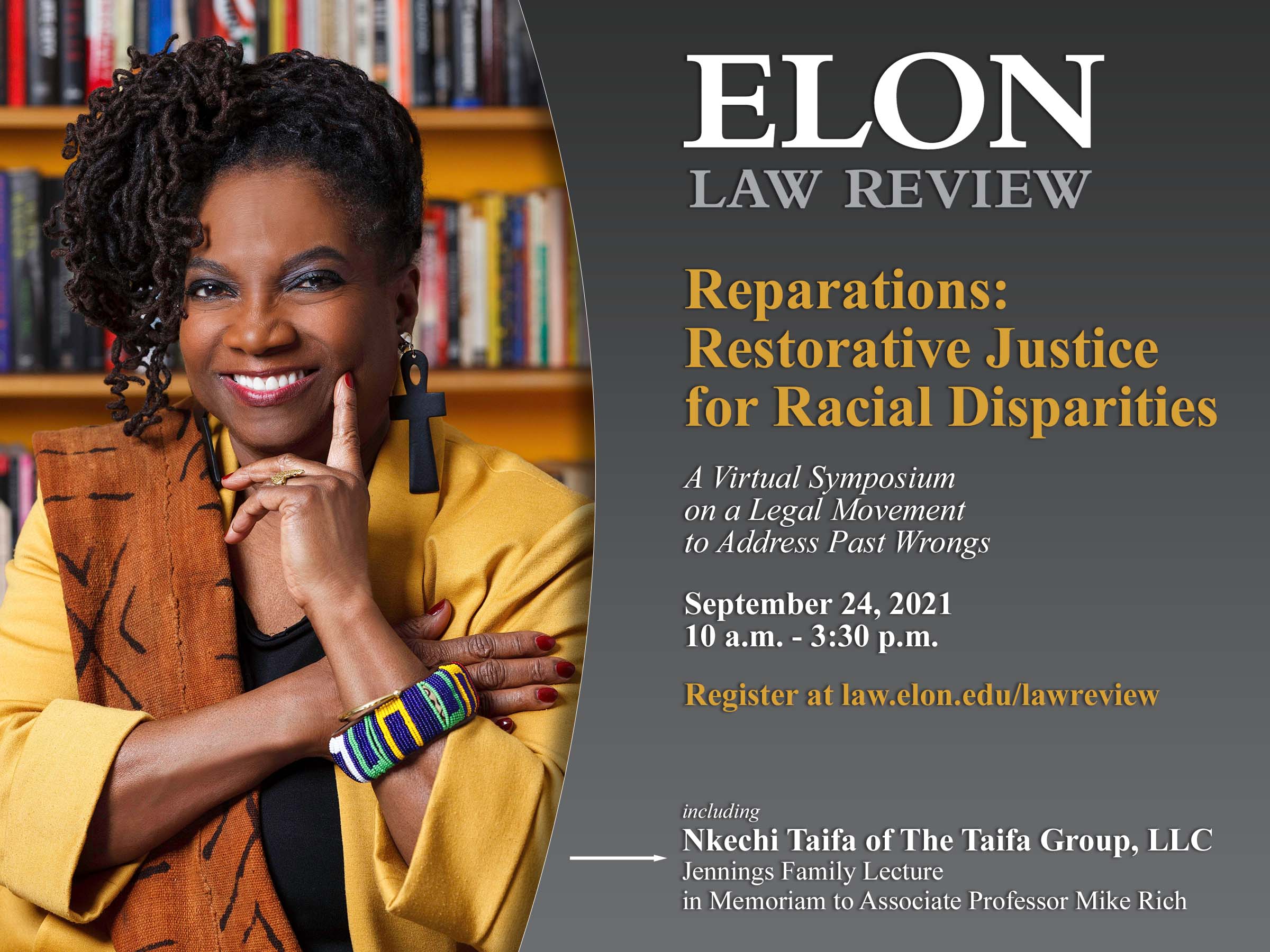"Reparations: Restorative Justice for Racial Disparities," the theme of the Elon Law Review's 2021 online symposium, takes place virtually on September 24 with legal scholars and advocates discussing the ongoing legal movement to address past wrongs.
The 2021 Elon Law Review Symposium takes place virtually this month with legal scholars and advocates from across the United States set to explore the question of reparations and restorative justice for those Americans harmed by ongoing racial disparities.
There is no cost to attend and the North Carolina State Bar has approved the program to count toward 4.0 general CLE credits. Registration is limited at law.elon.edu/lawreview. You do not need to be a lawyer to attend.
The September 24 program runs from 10 a.m. – 3:30 p.m. with a break for lunch.
The Symposium includes Elon Law’s annual Jennings Family Lecture in Memoriam to Associate Professor Mike Rich. Nkechi Taifa, founder and CEO of The Taifa Group, LLC in Washington, D.C., will deliver the 2021 address: “Reflection into the Origins and Meaning of Reparations and Exploration into Whether Reparations Can Serve to Remedy the Present Effects of Past Discrimination.”
Questions may be sent to lawreview@elon.edu. Links and additional information will be emailed to registrants prior to the event.
Speakers & Panelists
- Anthony Ashton (NAACP)
- William Darity, Jr. (Duke University)
- Sandra L. Rierson (California Western School of Law)
- Wendy Scott (Elon Law)
- Robert St. Martin Westley (Tulane Law)
- Vanessa Zboreak (Elon Law)
About the Program
The Declaration of Independence declares that “all men are created equal” and goes on to state that all men have the unalienable rights of “Life, Liberty, and the pursuit of Happiness.” Yet the Constitution condoned the continuation of human bondage and deemed individuals held in slavery as property to count as “three fifths” of a person to protect the political power of slave-holding states. History has shown progress, as reflected in the 13th, 14th, and 15th Amendments, Brown v. Board of Education, the Civil Rights Acts of 1957 and 1964, and the Voting Rights Act of 1965. Despite this, the lingering adverse effects of slavery and its aftermath persist today throughout the United States.
Applauding the progress that has occurred, while acknowledging more progress is needed, the Elon Law Review Symposium Editors have invited scholars and advocates to address the circumstances creating racial inequality in every aspect of life for Black Americans; the origins and meaning of reparations; reparations in an international context; whether reparations can serve to remedy the present effects of past discrimination; and how the nation can reconcile the contradictions created by the Founders.



